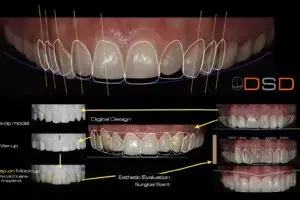Maintaining a confident smile involves more than just brushing twice a day. It means understanding basic oral hygiene, keeping up with regular check-ups, knowing when to seek treatment, and making informed choices about your overall health. Many Aussies feel unsure about what a dentist can offer or how to tackle common concerns like sensitive teeth, sore gums, or dull-looking enamel. The good news is that you don’t need an advanced qualification to make smarter decisions for your teeth and gums. With a few practical steps, honest advice, and a willingness to stay informed, you can enjoy a healthier, brighter smile for years.
The Value of a Trusted Dentist
A strong relationship with a trusted dentist can set the foundation for better oral health. Some hesitate to visit because of cost, fear, or time constraints. Yet, skipping appointments might lead to bigger problems down the road. Finding a family-friendly dentist who values open communication, comfort, and preventive care helps break down these barriers. You can feel at ease asking questions, sharing concerns, and participating in decisions about your treatment. Over time, this kind of professional relationship can turn routine dental checkups into positive, stress-free experiences.
Getting the Basics Right
Your mouth is a busy place, hosting teeth, gums, saliva, and friendly bacteria that work together to keep everything in balance. Good oral hygiene tips the scales in your favour, lowering the risk of issues like decay or gum disease.
- Brushing and Flossing: Dentists generally recommend brushing at least twice a day for about two minutes each time. Use a fluoride toothpaste and a soft-bristled brush. Daily flossing helps remove plaque and debris where brushes can’t reach. According to the Australian Dental Association, consistent brushing and flossing can significantly reduce your chances of cavities and gum troubles.
- Regular Check-Ups: Most experts suggest routine examinations at least twice a year. Even if your teeth seem fine, a professional cleaning and inspection can catch early warning signs. Spotting small issues early on often means shorter, simpler, and cheaper treatments later.
- Good Nutrition: A well-rounded diet supports healthy teeth. Foods rich in calcium, vitamin D, and phosphorus help keep enamel strong. Cutting back on sugary drinks and snacks makes a big difference too. Staying hydrated assists saliva in flushing out harmful bacteria. If you want to enjoy a strong, radiant smile over time, start by looking at what you eat and drink.
Stopping Problems Before They Start
You might wonder why you still get cavities or inflamed gums even though you brush every morning and night. Sometimes it comes down to habits. Snacking frequently can feed bacteria that produce damaging acids. Stress might cause you to grind your teeth, wearing them down without you even noticing. Identifying these patterns can help prevent more serious problems later.
If you’re keen to make smart changes early, consider focusing on preventive oral care every day. Simple steps like using the right toothbrush, cutting down on sugary treats, or adding fluoride mouthwash to your routine can help you maintain healthier teeth all year round.
What to Expect at Your Appointment
Many people feel anxious about dental visits. Understanding what happens during a check-up can help ease your mind. A standard visit typically includes a professional cleaning to remove plaque and tartar, an examination of your teeth and gums, and possibly X-rays to spot hidden issues. After the exam, you’ll discuss any concerns or next steps with your dentist.
Modern dentistry aims to reduce discomfort. Numbing gels, gentle techniques, and better tools help ensure a more pleasant experience. If you’re curious about what might happen if you need more than a simple clean, it helps to familiarise yourself with various treatment options available today. From fillings to crowns, knowing what’s ahead makes the process less intimidating.

Enhancing Your Smile’s Appearance
A healthy smile doesn’t just mean disease-free teeth. Sometimes, you may want your smile to look brighter or more uniform. Cosmetic treatments, like whitening or veneers, offer ways to improve your smile’s appearance. Many people find that even a small change, such as fixing a chipped tooth, can boost their self-esteem.
If you’re considering something along these lines, take a moment to explore cosmetic dentistry Treatments that can fine-tune your smile. You’ll find options ranging from quick fixes to more involved treatments, allowing you to pick what best suits your goals, budget, and schedule.
Understanding Costs and Coverage
Cost often comes up as a major concern. Dental fees vary depending on the treatment. While insurance might cover a portion of preventative or necessary procedures, cosmetic enhancements might fall outside basic coverage. Investing in regular check-ups pays off in the long run, as preventing a problem is cheaper and easier than fixing it later.
If you’re worried about expenses, it’s worth looking into affordable financing options that some practices offer. By spreading costs over several months or taking advantage of membership plans, you can manage your budget more comfortably. Always chat with your dentist about estimates, coverage details, and any available payment plans before starting a procedure.
Adapting Your Care Throughout Life
Oral health needs vary as you age. Children benefit from sealants and guidance on proper brushing. Teens may consider braces or aligners. Adults often prioritise preventing gum disease and addressing wear and tear. As you move into later life, you might face different challenges, such as dry mouth due to medications, or the need to replace missing teeth.
Consistent care and timely check-ups help you sail through these changes. For example, staying hydrated and using a suitable mouth rinse can reduce dryness. Regular cleaning can remove plaque and prevent gum issues. Over time, small adjustments ensure that your teeth remain strong and functional, no matter what life stage you’re at.
If you’re interested in shaping your lifestyle to support better oral health, try incorporating healthy daily habits that encourage long-term success. From nutritional tips to staying mindful of stress and grinding, every step counts.
Connecting Oral Health and Overall Wellbeing
Your mouth doesn’t exist in a vacuum. There’s mounting evidence linking poor oral health to conditions like heart disease and diabetes. By taking care of your teeth and gums, you may also support better health in other parts of your body. It makes sense: a healthy mouth helps minimise harmful bacteria that could enter your bloodstream and cause trouble elsewhere.
On top of this, a confident smile can brighten your social interactions. Whether it’s a family gathering, a job interview, or just chatting with mates, feeling good about your smile can make you more comfortable and open. In turn, this might boost your mood and overall sense of well-being.
Steps to Start Improving Your Oral Health
There’s no need to wait for a problem before you take action. Consider starting today:
- Check Your Technique: Brush gently and thoroughly, and floss daily. Using an electric brush can make the job easier.
- Try a Mouthwash: Look for one that contains fluoride or antibacterial agents. It can help reach spots you might miss with a brush.
- Tweak Your Diet: Reduce sugary treats and acidic beverages. Add calcium-rich foods like dairy and leafy greens to strengthen your teeth.
- Book a Check-Up: Don’t put off appointments. Routine visits keep you ahead of potential issues and can save you money down the line.
- Keep Learning: Knowing more about your options makes you an active participant in your oral health journey.
Moving Forward with Confidence
Oral health doesn’t have to be complicated. By combining good daily habits, regular check-ups, a balanced diet, and a willingness to learn, you set yourself up for success. Whether you’re seeking a subtle enhancement to your smile or want to avoid major procedures in the future, the key is to stay engaged.


